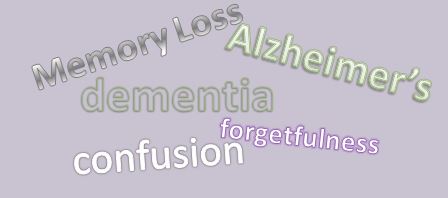As a regular feature on our blog, we’ll answer your senior care questions. Feel free to leave a comment or fill out our online form to submit a question!
 Today we will answer the two-part question: How do I know when my parent’s memory loss or forgetfulness is more than typical aging (i.e. something to be worried about)? And, what signs and signals indicate the need for help for a cognitive problem?
Today we will answer the two-part question: How do I know when my parent’s memory loss or forgetfulness is more than typical aging (i.e. something to be worried about)? And, what signs and signals indicate the need for help for a cognitive problem?
To begin, it is likely that if you are asking this question there is reason to believe there is an issue beyond normal aging. It is normal to experience an occasional “senior moment”, but when forgetfulness or confusion are noticeable to others or impact functioning, this is indicative of something beyond normal aging. Aging Wisely offers a great handout entitled “Memory Loss, Old Age, Dementia: What is it?” that explains the terms and also the differences between normal aging and dementia signs.
If your aging parent is having disruptive issues related to memory problems, it is likely time to understand the cause. It is not part of the “normal” aging process to have trouble managing senior care for one’s self or difficulty handling common tasks that have normally not been a problem. Numerous missed appointments indicate a concern as well. One of the early signs that many family members notice is difficulty with financial or other tasks which require “complex thinking”. You have to compare this to a baseline (i.e. if your Dad always handled the bills and checkbook, but has now begun missing payments) and “getting scammed” is not always an indication of dementia. However, these indicators may warrant some changes, before bigger problems occur.
Some signs to watch for if you are worried about memory loss (these can also go hand-in-hand with physical impairments or other senior care issues):
- Spoiled food in the refrigerator, difficulty preparing meals or dealing with appliances properly, forgetting to turn off the stove.
- Missed appointments, trouble remembering dates and managing tasks and to-do’s.
- Significant changes in appearance and personal care.
- Significant changes in household maintenance/care and cleanliness.
- Medication misuse (signs might include unfilled prescriptions, pill bottles in disarray, inability to explain what a medicine is for or when/how it is to be taken).
- For more signs, grab a free copy of our “Warning Signs” evaluation checklist:
What are the first steps? Primary care physicians and other practitioners may be able to do a memory screening. From there, it is important to get a good diagnostic workup, which will include things like a physical exam and review of symptoms and history, blood work and possibly other testing (such as an MRI). Memory care clinics or specialists can assist with the diagnostic process, to determine if the symptoms and patterns indicate some form of dementia and to rule out reversible causes. You may have to take different approaches to initiating this process, as your loved one may be fearful or resentful of your implications that something is wrong. Remember, their cognitive issues may feel very confusing and threatening to them.
What’s next? After getting a diagnosis, the important issue is ensuring your loved one’s continued safety and wellbeing. This can all seem very overwhelming and it is an ideal time to talk to a Senior Care Advisor about the issues and concerns you are facing. This can help you prioritize and take care of immediate safety needs without feeling completely overwhelmed (and overwhelming your loved one with too many changes).
If your loved one has shown some of the signs above, he/she will likely need help with senior care. A licensed home health agency with caregivers trained in memory care/dementia assistance, such as EasyLiving, can help in a variety of ways. It may be as simple as having a little bit of help with problem areas, such as someone to prepare meals or a nurse to manage medications. Home care can evolve to meet your loved one’s needs as things change and you and the home health agency should periodically evaluate the careplan and needs.
We hope this answers your question about memory loss concerns. This question often leads to a lot more questions, so we welcome your comments or calls. EasyLiving can assist with dementia care in the home, including medication management, meal preparation, safety and supervision and much more. We serve Pinellas County and West Pasco counties in Florida. Give us a call today at 727-448-0900 if you need help (or know someone who might) in those areas!








